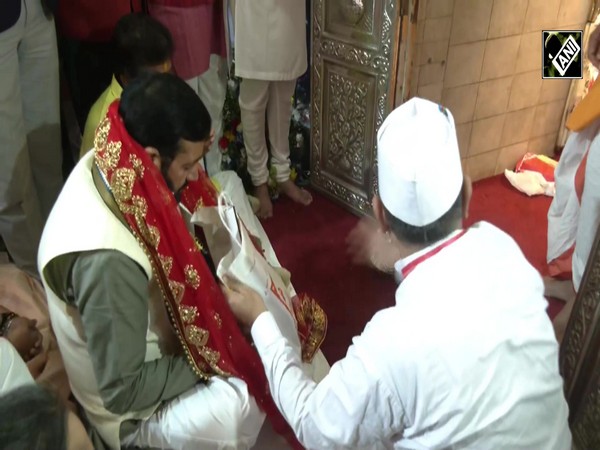"As part of the Waqf Amendment Bill 2024, we want the poorest and the most backwards of the citizens to get justice," says Sena MP Mhaske
Aug 22, 2024

New Delhi [India], August 22 : Ahead of the Joint Parliamentary Committee meeting on the Waqf Amendment Bill 2024, Shiv Sena Leader and Panelist of the JPC Naresh Mhaske on Thursday stated that as part of the Waqf Amendment Bill, we want the poorest and the most backwards of the citizens to get justice.
Speaking to ANI, Naresh Mhaske mentioned, "As part of the Waqf Amendment Bill (2024), we want the poorest and the most backwards of the citizens to get justice... This bill is based on the Sachar Committee report presented by the Congress. We are not doing anything different... If the Waqf Board stands ahead of the Constitution, a legal decision will have to be taken..."
The chairperson of the JPC, Jagdambika Pal, said that they will give maximum opportunities to the maximum number of people from minority organisations while discussing the bill. Pal said that the government has a specific purpose for bringing this bill that the the properties handed to the Waqf should help the backward Muslims and women.
Notably, the parliamentary committee examining the bill has 21 members from the Lok Sabha and 10 from the Rajya Sabha.
The government introduced the bill in the budget session of Parliament which concluded earlier this month and it was decided to send the legislation to JPC for further scrutiny.
The Waqf (Amendment) Bill, 2024, Waqf Act provides for the renaming of the Waqf Act, 1995, as the Unified Waqf Management, Empowerment, Efficiency and Development Act, 1995. It seeks to clearly define "Waqf" as Waqf by any person practising Islam for at least five years and having ownership of such property and ensure that the creation of Waqf-alal-aulad does not lead to the denial of inheritance rights to women.
It also seeks to omit the provisions relating to the "Waqf by user", provide the functions of the Survey Commissioner to the Collector or any other officer not below the rank of Deputy Collector duly nominated by the Collector for the survey of waqf properties, provide for a broad-based composition of the Central Waqf Council and the State Waqf Boards and ensure representation of Muslim women and non-Muslims.
The bill seeks to provide for the establishment of a separate Board of Auqaf for Boharas and Aghakhanis.
The bill seeks to omit section 40 relating to the powers of the Board to decide if a property is Waqf property, provide for filing of accounts of waqf by mutawallis to the Board through a central portal for better control over their activities, reform the Tribunal structure with two members and provide for appeals against the orders of the Tribunal to the High Court within a specified period of ninety days.
Minority Affairs Minister Kiren Rijiju, who introduced the bill in the Lok Sabha, has said that the JPC will submit its report to the Lok Sabha by the last day of the first week of the winter session of Parliament.

















